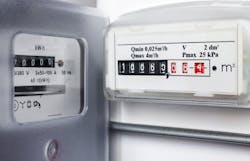Study Explores Many Facets of Heat Pumps v. Natural Gas Debate
As the HVAC industry gallops toward replacing natural gas-based heating with electrification, a research report published in July 2021 by IOP Publishing found that 32 percent of homes in the United States would benefit economically from installing an electric heat pump, and 70 percent of U.S. homes could reduce what the authors describe as "emissions damages" by installing a heat pump.
The report is very timely, moreso now than at the time of its original release, due to the increased movement toward electrification now seen within the heating and cooling industry.
In the report, authors Thomas A. Deetjen, Liam Walsh and Parth Vaishnav describe how the potential for heat pump adoption varies depending on electric grids, climate, baseline heating fuel costs, and housing characteristics. They use those findings to identify strategic, technology, and policy insights to stimulate high heat pump adoption rates and deep electrification of the U.S. residential heating sector, which they say reduces CO2 emissions and the impacts of climate change.
Heat pump installation costs were calculated using a coefficient of 143.30 $kW of capacity in all cases, plus a fixed cost that varies from $3300 to $4800.
The authors are pro electrification, and they accept climate change as fact, however they provide much evidence for both sides of the gas v. electrification debate, and do not avoid arguments against residential heat pumps. They provide commentary on what they believe to be the failings of past research related to the electric grid, the diversity of housing stock and climates.
"By answering these questions, this analysis fills a research gap that fails to understand the full implications of high rates of heat pump adoption. Filling that research gap advances our understanding of the potential for heat pump adoption and the challenges that inhibit higher adoption rates. It helps identify where to focus current efforts to encourage heat pump adoption: both in terms of geographical location and building characteristics. It also helps us develop projections of how new policies and innovations might change the balance of benefits and costs of heating electrification."
The authors used a 5-step approach to their research:
1. Simulation of residential energy consumption, using the National Renewable Energy Laboratory's ResStock tool to create a virtual stock of 400 houses for each of 55 cities.
2. Publicly available data to quantify those consumption profiles' energy cost, health damages, and CO2 emissions.
3. Calculations of the private and public net present value (NPV) that results from each household adopting a heat pump. For each simulated house, the replace the existing heating technology with an air-source heat pump.
4. Quantify the percentage of the housing stock that would benefit from heat pump adoption.
5. Use the houses' hourly electricity profiles to quantify the impact of heat pump adoption on peak electricity demand.
Heat pump installation costs were calculated using a coefficient of 143.30 $kW of capacity in all cases, plus a fixed cost that varies from $3300 to $4800.
Among the authors concluding comments:
- Heat pump adoption yields a net economic benefit for 21 percent of US single-family houses. When including houses with existing heat pumps, this amounts to a total adoption rate of 32 percent.
- From a public welfare viewpoint, the combined climate and health net present value of heat pump adoption is positive for 70 percent of the non-heat-pump housing stock in the United States. This rate may decrease when considering the cost of firming the electric grid to handle increased peak electricity demand: a consequence that many cities will experience.
VIEW AND DOWNLOAD THE REPORT HERE.
Creative Commons Attribution 4.0 International Public License.
About the Author
Terry McIver
Content Director - CB
As director of content for Contracting Business, he produces daily content and feature articles for CB's 38,000 print subscribers and many more Internet visitors. He has written hundreds, if not two or three, pieces of news, features and contractor profile articles for CB's audience of quality HVACR contractors. He can also be found covering HVACR industry events or visiting with manufacturers and contractors. He also has significant experience in trade show planning.
